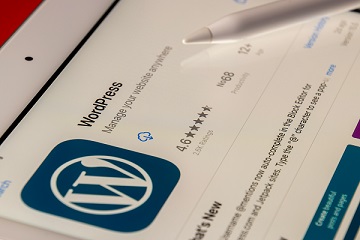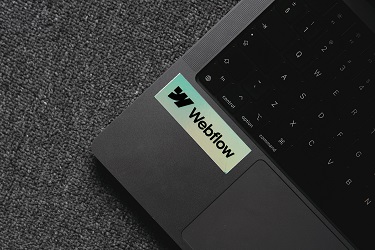Why WordPress Is Still the Superior Choice over Webflow
Choosing the right platform for your website is more than a matter of preference; it’s a strategic decision that can significantly impact your online success and company brand. While Webflow has emerged in the last few years as a popular tool for its ease of use and visual design capabilities, WordPress continues to stand out as the preferred choice for businesses aiming for growth, flexibility, and a robust online presence. In this post, we delve into the WordPress vs Webflow matter and why WordPress triumphs, providing compelling reasons for selecting WordPress for their digital endeavors.
Customization and Flexibility
WordPress: A Universe of Possibilities
WordPress’s most significant advantage lies in its unparalleled customization and flexibility. Thanks to its open-source nature, the platform hosts an extensive ecosystem of plugins and themes, allowing users to tailor their sites to their exact needs. Whether you’re looking to enhance your SEO, boost your site’s speed, add an online store, or integrate with third-party services, there’s almost certainly a plugin for that. This extensibility makes WordPress ideal for businesses that anticipate scaling up or diversifying their online activities.
Webflow: Sleek, But Restricted
Webflow offers a more contained environment, which might appeal to users seeking simplicity. However, this simplicity comes at the cost of flexibility. While Webflow’s design-first approach is innovative, it inherently limits what you can achieve compared to WordPress. For businesses that require specialized functionalities or wish to extensively customize their site beyond visual design, Webflow’s restrictions become apparent.
SEO Capabilities
WordPress: Mastering Search Engine Visibility
With WordPress, optimizing your website for search engines is a breeze, thanks to advanced SEO plugins like Yoast SEO and All in One SEO. These tools guide you in optimizing content, improving readability, and ensuring your site meets the best SEO practices. The level of detail and control WordPress offers for SEO is unmatched, making it the go-to choice for businesses serious about high rankings in search results.
Webflow: Basic, But Limited
Webflow provides basic SEO tools that cover the essentials. However, it lacks the depth and breadth of WordPress’s SEO capabilities. For businesses looking to execute a sophisticated SEO strategy, WordPress’s comprehensive tools and plugins offer a more robust solution.
Cost-Effectiveness
WordPress: Open-Source and Economical
WordPress’s open-source nature means the software itself is free. Costs are primarily associated with web hosting, premium themes, or plugins, which are often one-time or annual fees. This model allows businesses to control their expenses, making WordPress a cost-effective solution over time.
Webflow: Subscription-Based Expenses
Webflow operates on a subscription model, which can seem affordable at first glance but may become more expensive as your needs grow. The cost of Webflow can quickly escalate, especially for larger sites or those requiring advanced features, making WordPress a more economically viable option in the long run.
E-commerce Solutions

For e-commerce, WordPress offers WooCommerce, a powerful and customizable platform that integrates seamlessly with your site. WooCommerce supports an array of payment gateways, shipping options, multiple currencies and currencies converters and virtually unlimited product variations, making it suited for businesses of all sizes.
Webflow: Simplicity over Flexibility
Webflow’s e-commerce capabilities are designed for simplicity, which might suffice for smaller online stores. However, businesses that need more control over their e-commerce experience will find WooCommerce’s flexibility and scalability more accommodating.
Community Support and Resources
WordPress: A Global Community
WordPress boasts a massive, global community of developers, designers, and users. This vibrant community offers an abundance of tutorials, forums, and resources, ensuring help is always available. Whether you’re a beginner or an advanced user, the WordPress community is an invaluable asset.
Webflow: Growing, But Limited
While Webflow has a supportive community, it’s significantly smaller and less established than WordPress’s. This means fewer resources, tutorials, and third-party services, which can be a drawback for businesses requiring extensive support and development.
Conclusion
WordPress’s superior customization, flexibility, SEO capabilities, cost-effectiveness, and community support make it the preferred choice for businesses looking to establish or grow their online presence. While Webflow offers a streamlined, design-centric approach, it falls short in providing the scalability, control, and extensive ecosystem that WordPress offers.
If you’re looking to build a website that can grow with your business, adapt to your changing needs, and rank well on search engines, in the WordPress vs Webflow confrontation, WP is clearly the winner. Contact our WordPress digital agency today to discover how we can help bring your business’s online vision to life, or to learn more about transitioning from Webflow to WordPress.









